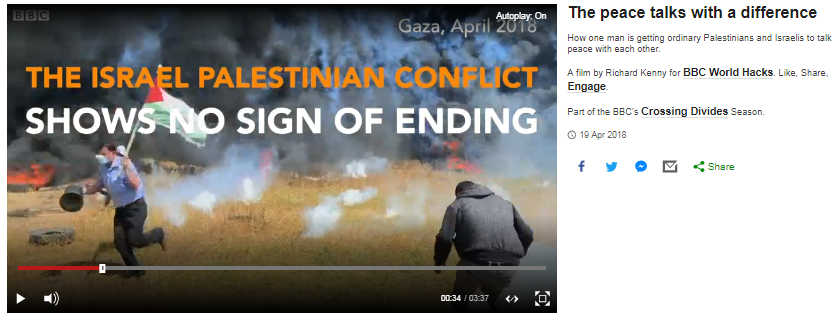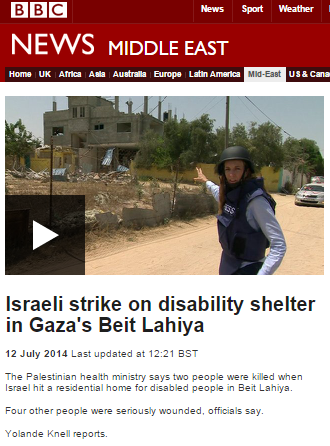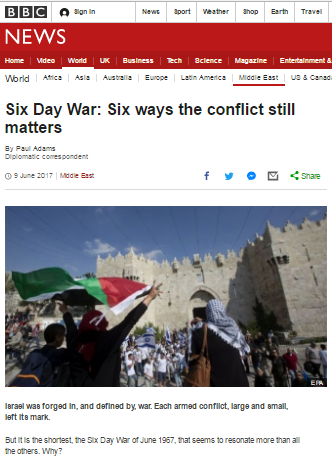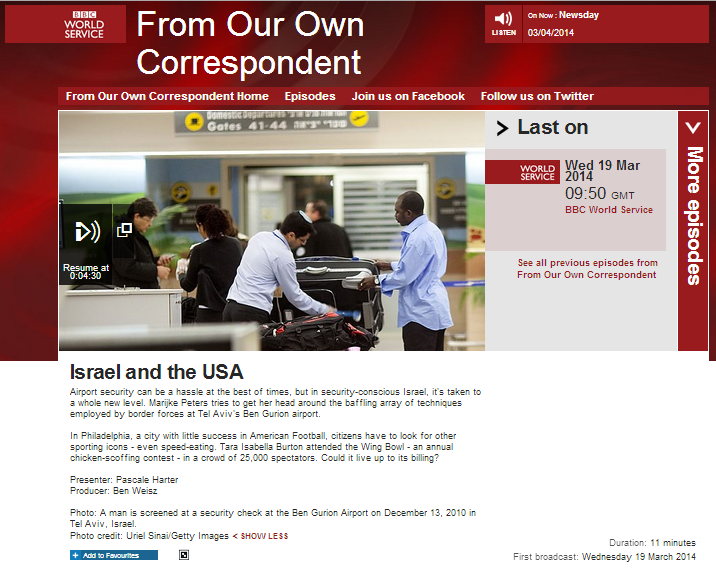In August 2014 the BBC News website published an article about the re-opening of the Chabad centre in Mumbai that had been closed for almost six years after it was targeted in a terror attack in 2008.
As was noted here at the time, some four hours after its original publication the article was amended and the word ‘terror’ was removed from its opening paragraph.
Version 1:
“A Jewish centre in the Indian city of Mumbai is due to reopen, nearly six years after it was attacked by gunmen in terror attacks on the city.”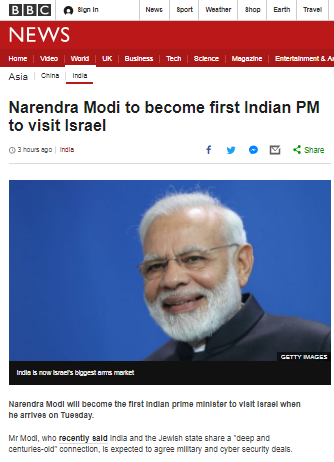
Version 2:
“A Jewish centre in the Indian city of Mumbai has reopened, nearly six years after it was stormed by gunmen who attacked the city.”
An explanation for that change in wording was never forthcoming but on July 4th visitors to the BBC News website’s Middle East page came across that article again in the form of a link in a report concerning the visit of the prime minister of India to Israel – “Narendra Modi to become first Indian PM to visit Israel“.
In this latest article, however, the 2008 attacks in Mumbai are accurately described as terror attacks.
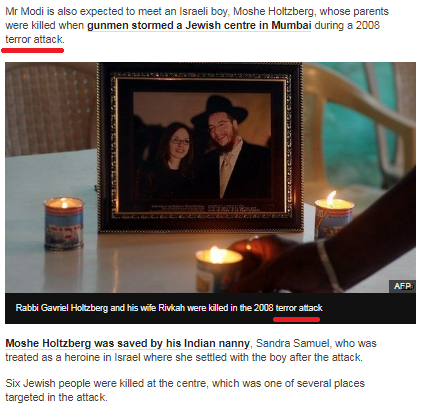
The BBC claims that:
“Our policy is about achieving consistency and accuracy in our journalism.”
And:
“We also need to ensure that when we report acts of terror, we do so consistently in the stories we report across our services.”
As regular readers know, that policy is not upheld and the terminology used by the BBC to describe and categorise attacks varies according to perpetrator and geographical location. But as this small example shows, consistency can even be lacking when the same story is reported on the same BBC platform.

